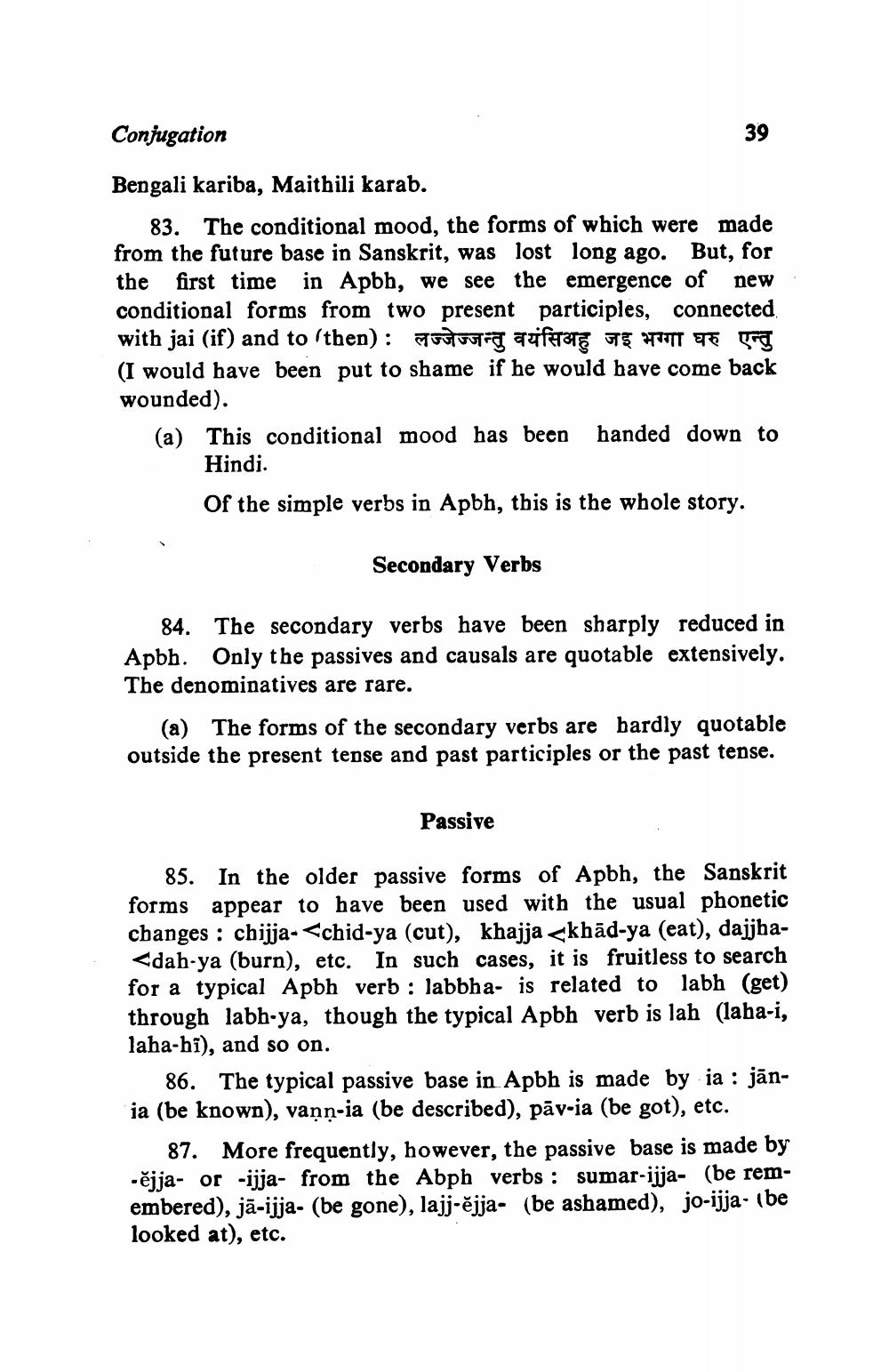________________
Conjugation
Bengali kariba, Maithili karab.
83. The conditional mood, the forms of which were made from the future base in Sanskrit, was lost long ago. But, for the first time in Apbh, we see the emergence of new conditional forms from two present participles, connected with jai (if) and to (then ) : लज्जेज्जन्तु वयंसिअहु जइ भग्गा घरु एन्तु (I would have been put to shame if he would have come back wounded).
39
(a) This conditional mood has been
Hindi.
Of the simple verbs in Apbh, this is the whole story.
Secondary Verbs
84. The secondary verbs have been sharply reduced in Apbh. Only the passives and causals are quotable extensively. The denominatives are rare.
handed down to
Passive
(a) The forms of the secondary verbs are hardly quotable outside the present tense and past participles or the past tense.
85. In the older passive forms of Apbh, the Sanskrit forms appear to have been used with the usual phonetic changes chijja- <chid-ya (cut), khajja <khād-ya (eat), dajjha<dah-ya (burn), etc. In such cases, it is fruitless to search for a typical Apbh verb: labbha- is related to labh (get) through labh-ya, though the typical Apbh verb is lah (laha-i, laha-hi), and so on.
86. The typical passive base in Apbh is made by ia jānia (be known), vann-ia (be described), pāv-ia (be got), etc.
87. More frequently, however, the passive base is made by -ějja- or -ijja- from the Abph verbs: sumar-ijja- (be remembered), jā-ijja- (be gone), lajj-ějja- (be ashamed), jo-ijja- (be looked at), etc.




